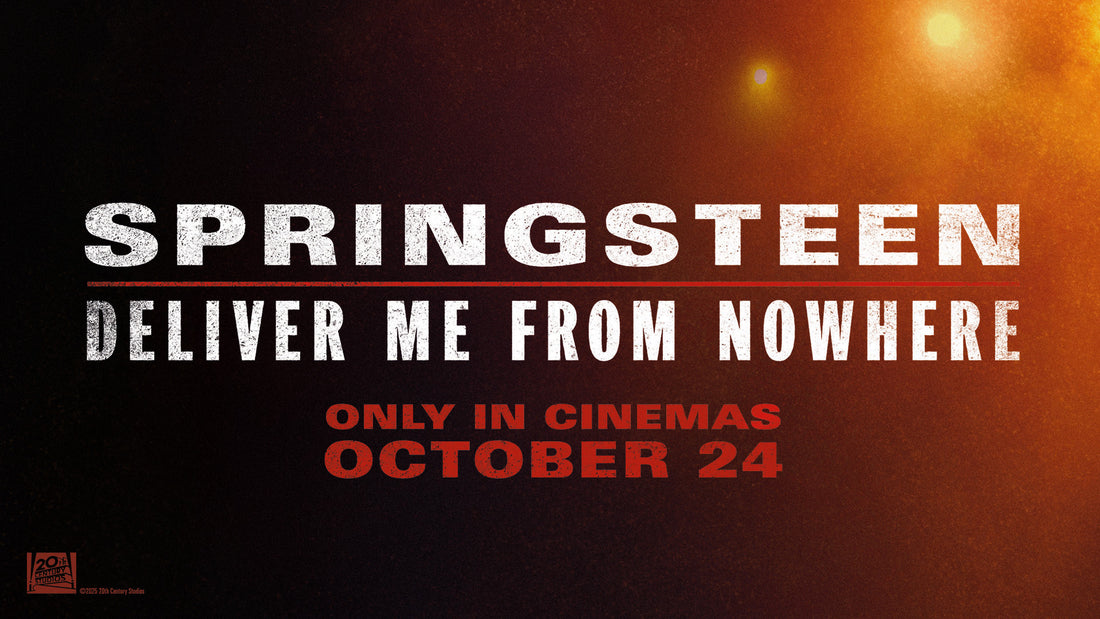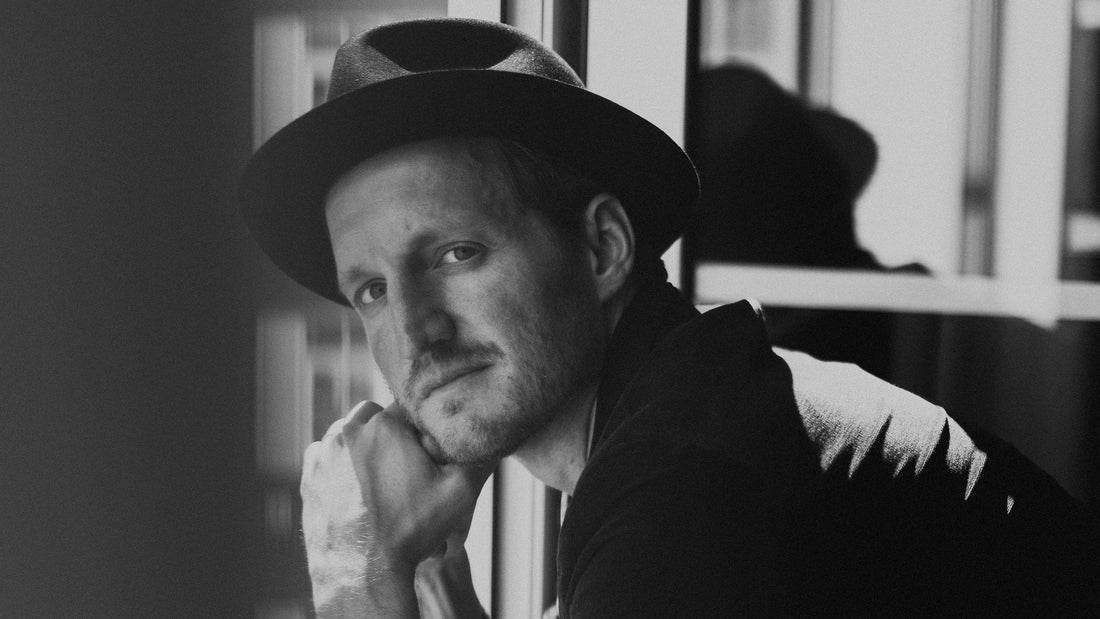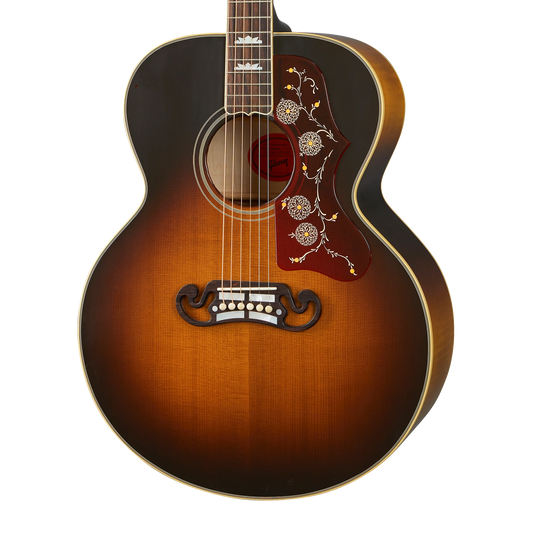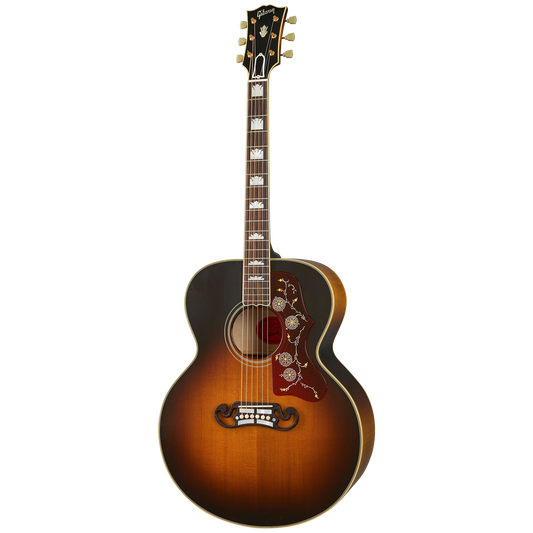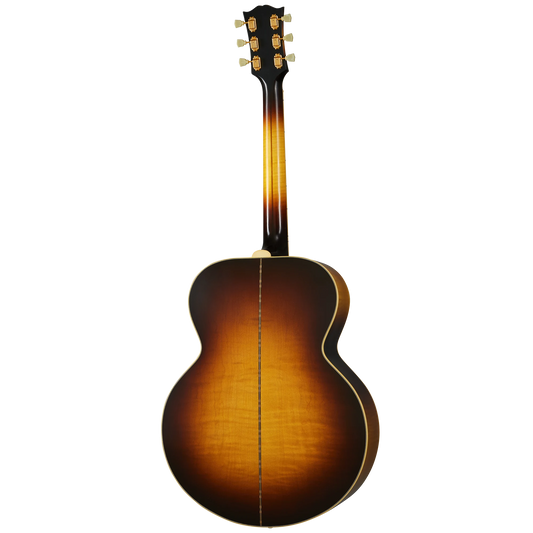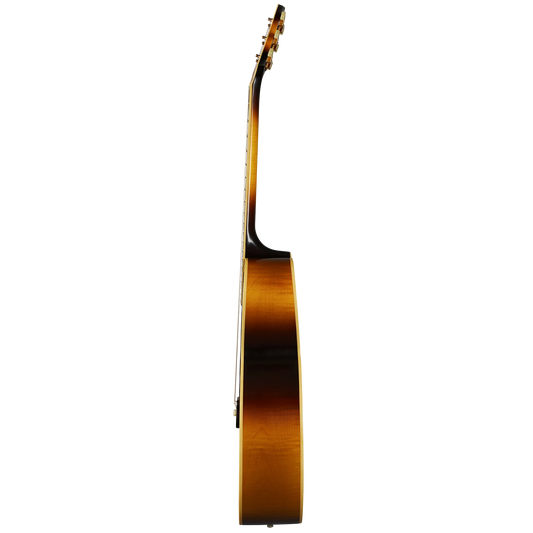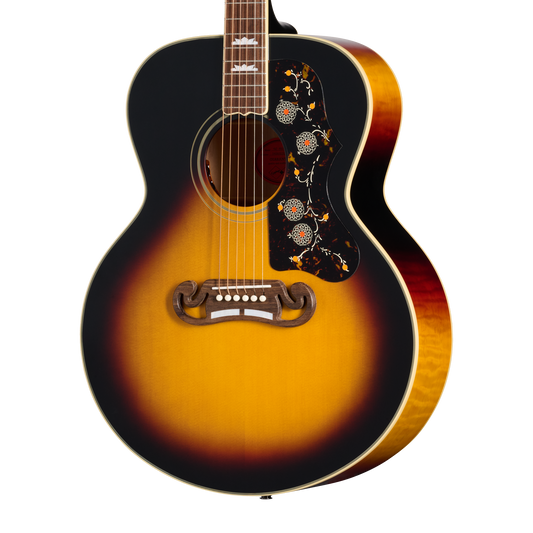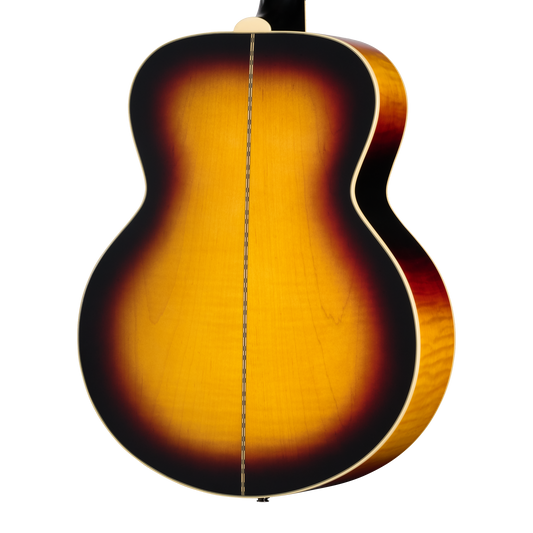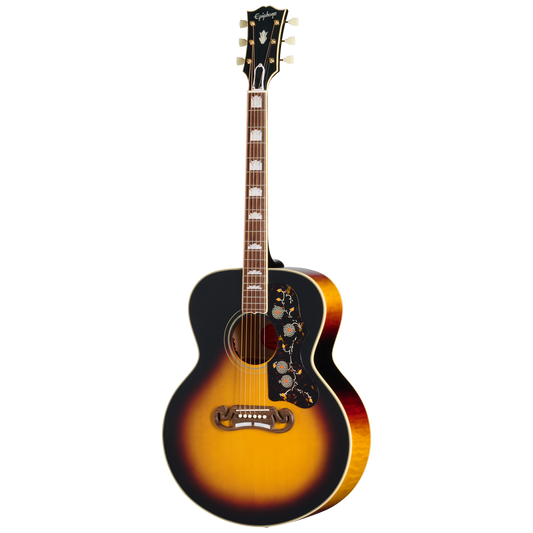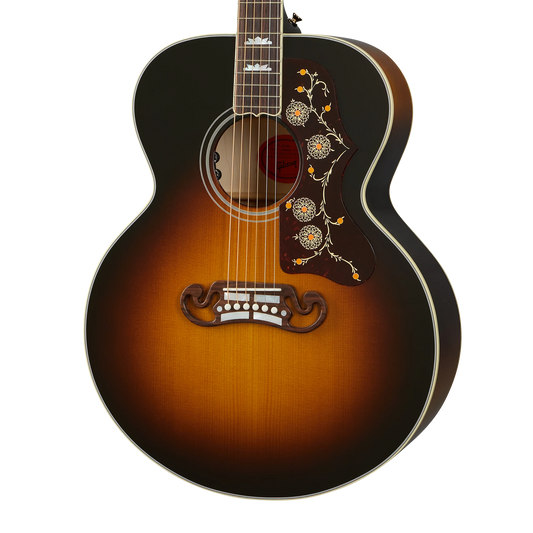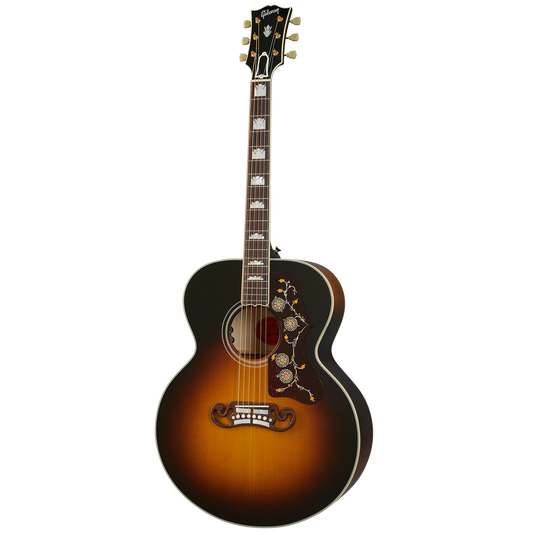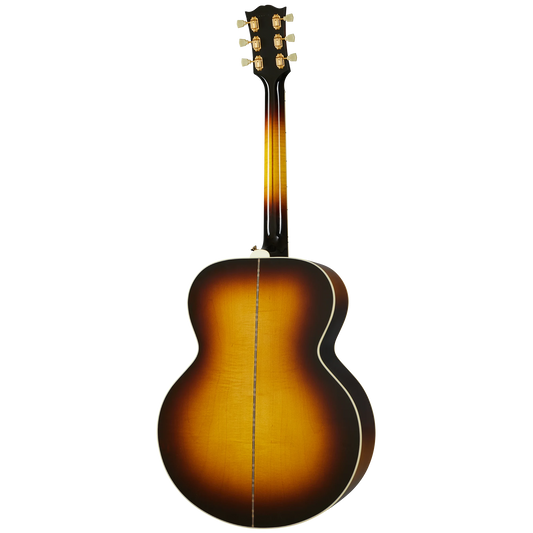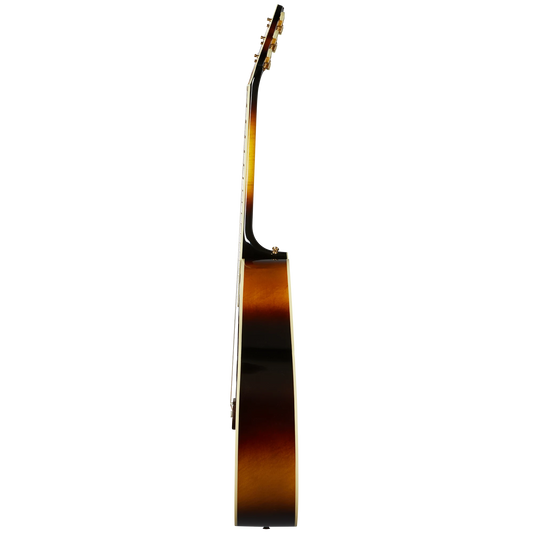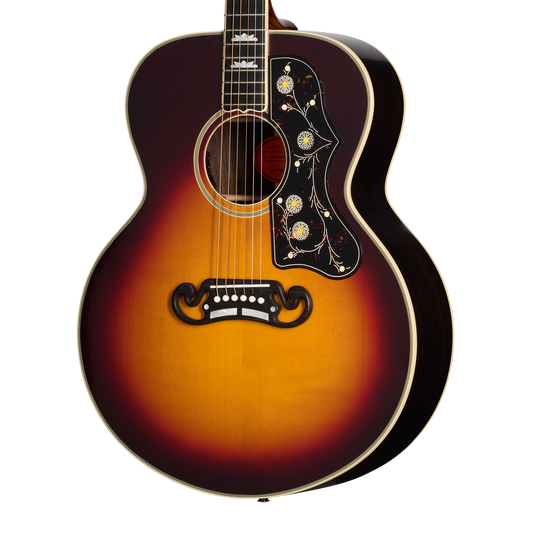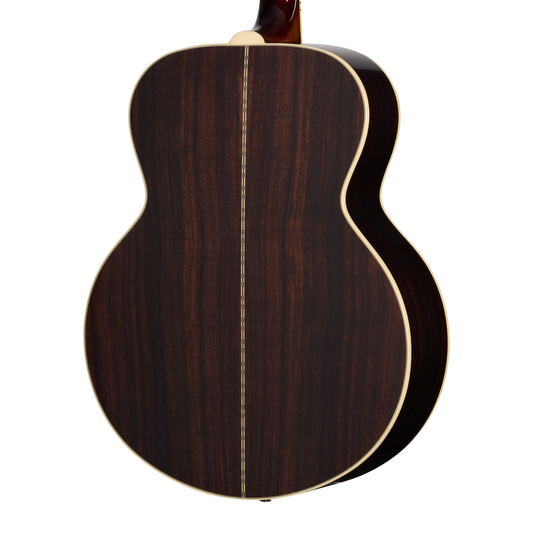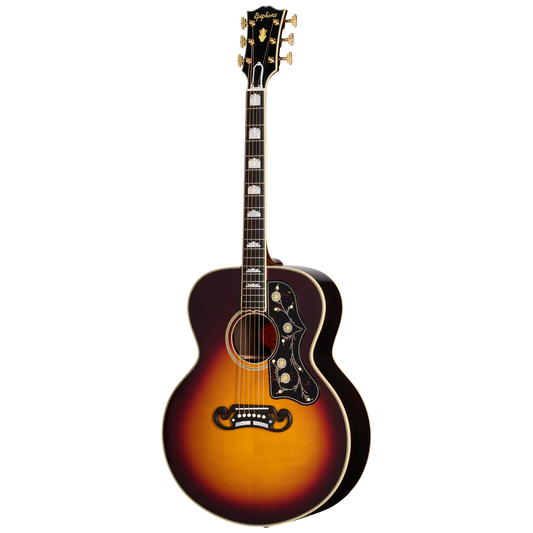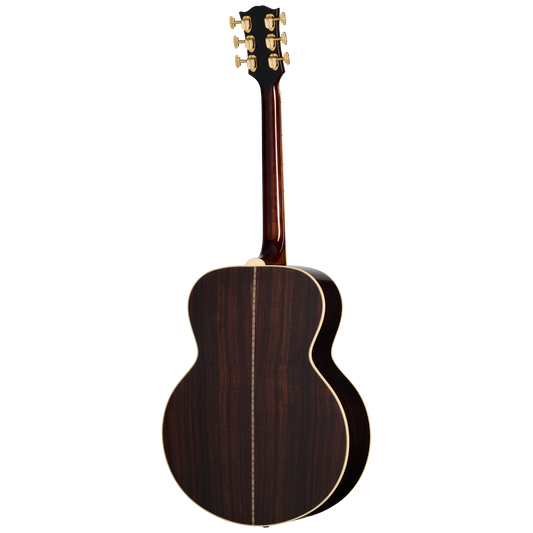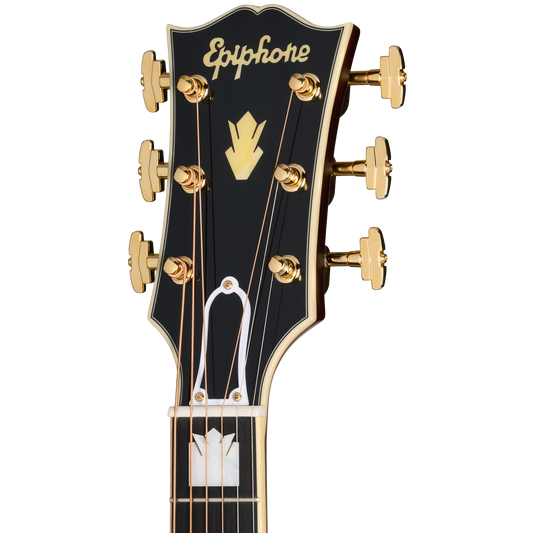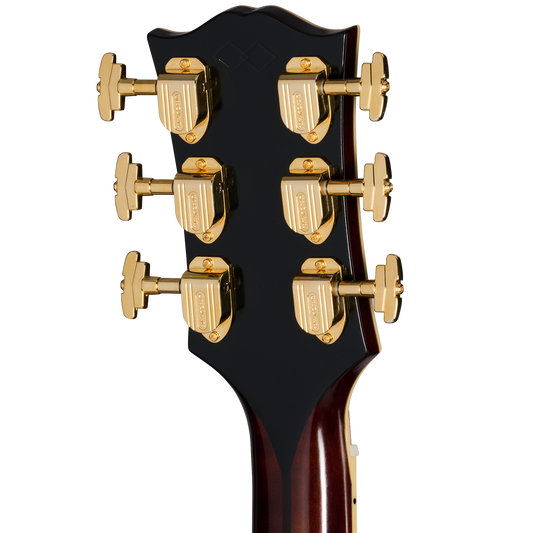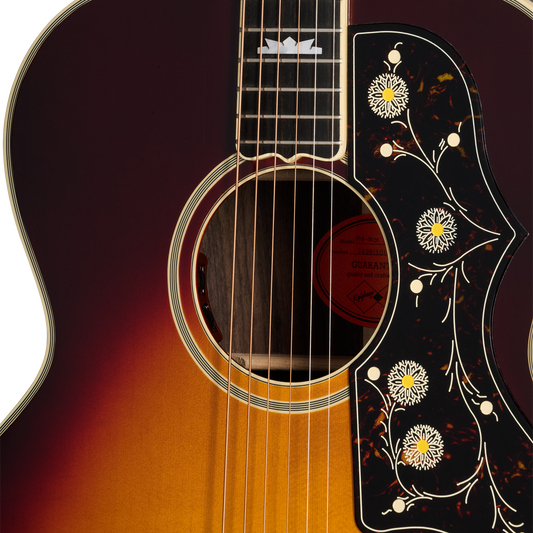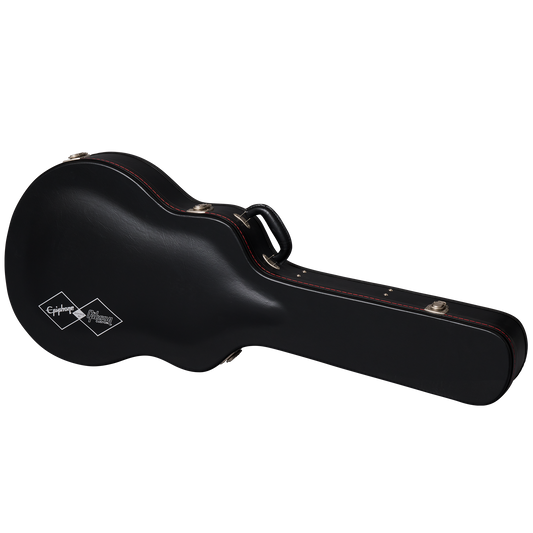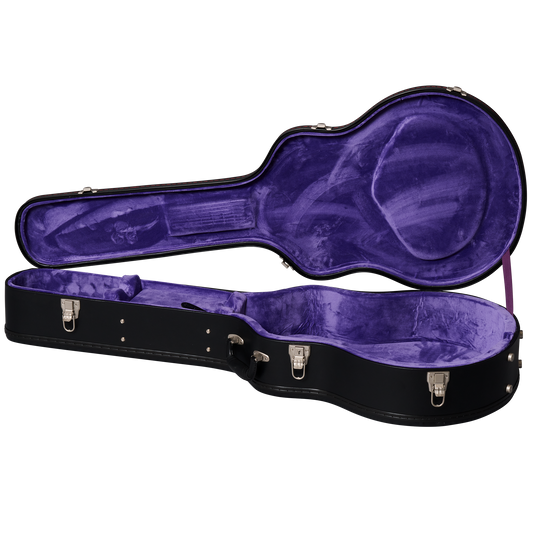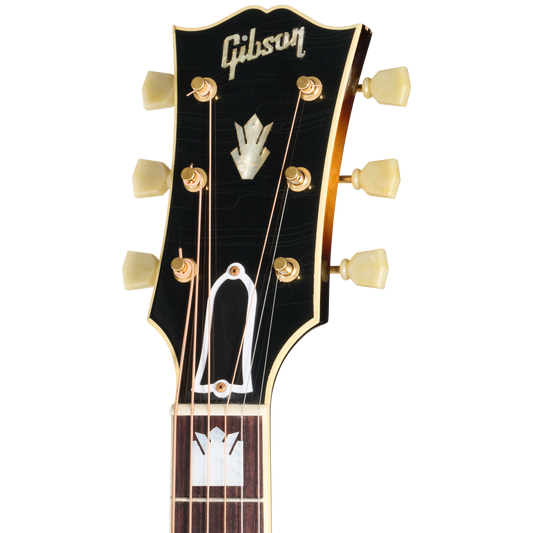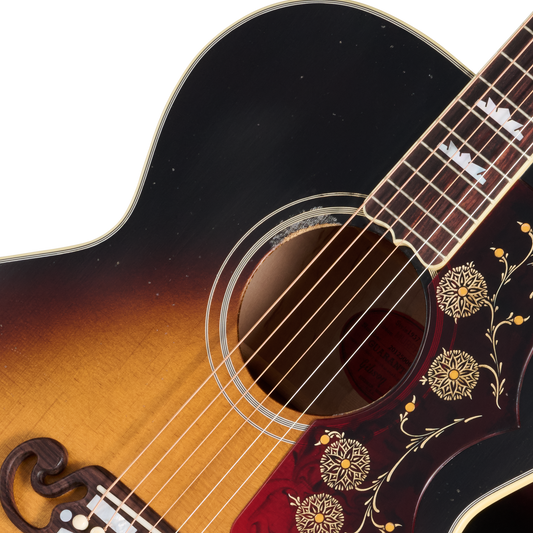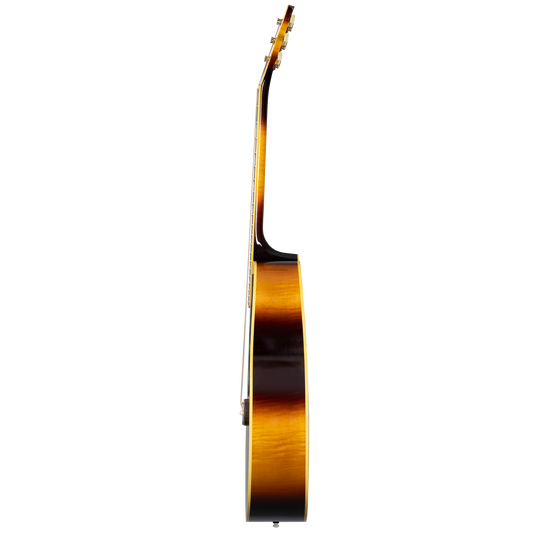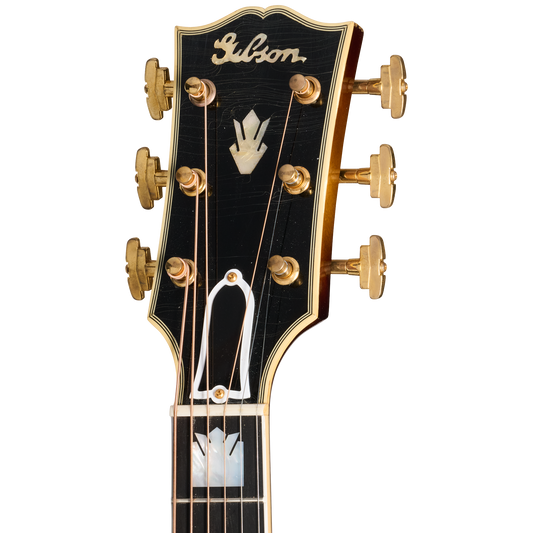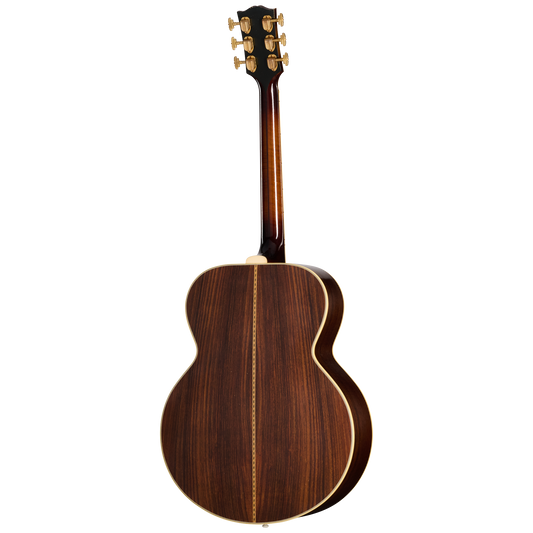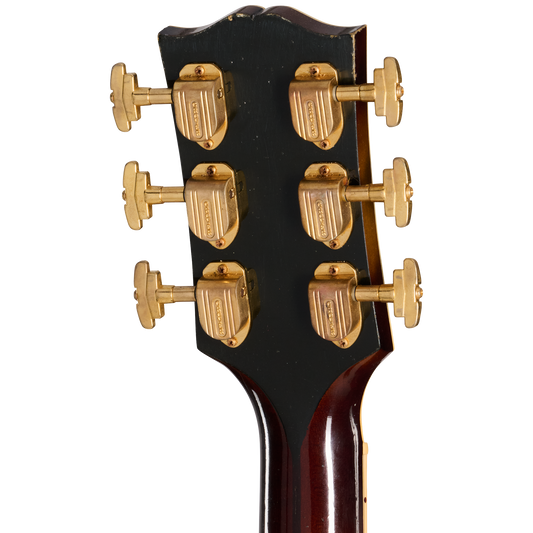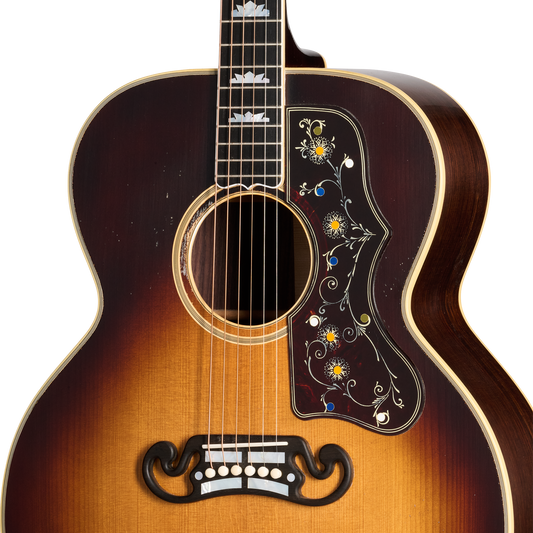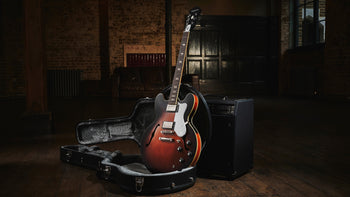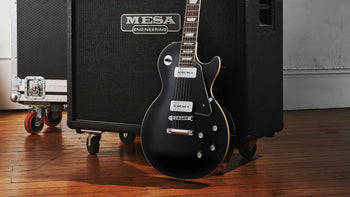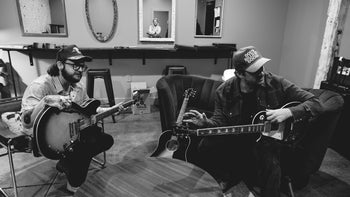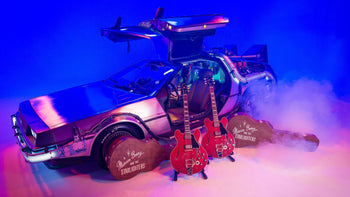“It’s really been the thrill of my career, the thrill of a lifetime, to have a small part in this story”
Released theatrically by 20th Century Studios on October 24, 2025, Springsteen: Deliver Me from Nowhere is the movie event of the year. Starring Jeremy Allen White as Bruce Springsteen, the film is written for the screen and directed by Scott Cooper, based on the book Deliver Me from Nowhere by Warren Zanes. It chronicles the making of Springsteen’s 1982 album, Nebraska, during the time when he was a young musician on the cusp of global superstardom, struggling to reconcile the pressures of success with the ghosts of his past. Recorded in his New Jersey bedroom using a late-1950s Gibson SJ-200 and a four-track cassette recorder, the album marked a pivotal time in Springsteen’s life and is considered one of his most enduring works.
As director Scott Cooper has intimated, don’t expect to meet “The Boss” in this film—instead, it examines the human behind one of the most haunting and beloved albums in music history. In addition to blazing a trail for the home-recording revolution, Nebraska presents the listener with a series of stark vignettes of the American dream turned sour, populated by a doomed cast of characters into whose search for redemption Springsteen’s own personal turmoil is deeply woven.
Award-winning music producer Dave Cobb was tasked with recreating Springsteen’s music for the film, but when it came to the original score, Scott Cooper turned to someone who, like Springsteen, was New Jersey born and raised—Jeremiah Fraites, multi-instrumentalist and songwriter from leading lights of American folk-rock, The Lumineers. We caught up with Jeremiah to find out how he created the original score for Springsteen: Deliver Me from Nowhere, the instruments he used, and what his own experiences of Springsteen’s music brought to the table.
It must be a huge buzz to contribute to a film of this magnitude. What does Bruce Springsteen’s music mean to you and how did you get involved with the project?
“I grew up in Ramsey, New Jersey, and I was born in ’86, so by the time I came into consciousness in the early 90s, Bruce Springsteen was already The Boss, he was already in full swing. I feel like I learned how to drive listening to Bruce Springsteen, but it was always like the hits—‘Born in the USA,’ ‘Hungry Heart,’ ‘Dancing in the Dark,’ ‘I’m On Fire’—it was always those hits that had the full band, all the fleshed-out songs.
“Fast-forward to my twenties at some point and I heard a song, probably ‘State Trooper,’ and I was like, ‘Oh, who’s this?’ Somebody said, ‘Bruce,’ and I was taken aback. It was almost the same type of paradigm shift that a band like Radiohead was capable of, when you hear OK Computer and you hear Kid A, and you are like, ‘How is this the same band?’ And I think for me, I thought, ‘How is this the same artist?’ It was so restrained and refined, and so dirty and sort of raw—it really spoke to me and the rest of that record, Nebraska, really spoke to me.
“Probably 10, 15 years later with The Lumineers, we’d actually done an event in Nashville, Tennessee, in relation to Warren Zanes’ book, Deliver Me from Nowhere—it was like a PBS broadcast special where we covered ‘State Trooper’ and another song off Nebraska. So I’d already fallen in love with that album, heard about the movie that was getting made, and tried to get on the director Scott Cooper’s radar. It was actually funny, I’d sent a handful of piano demos—I didn’t want to do too much guitar because of how heavily Nebraska is guitar-laden—but as a potential composer I wanted there to be a clear delineation between when people are listening to Bruce and Nebraska, and whatever original score I was potentially going to do.
“So I sent probably 60, 70 percent piano and 30, 35 percent guitar and later, I find out from Scott that he was like, ‘I don’t really love piano all the time because that can trigger this instantaneous sentimentality, I don’t want to have too much sentimentality in my movies.’ Somehow I sent him just the right amount, I guess! I eventually got the job and it’s really been the thrill of my career, the thrill of a lifetime—not just being fake humble about it—to have a small part in this story.”
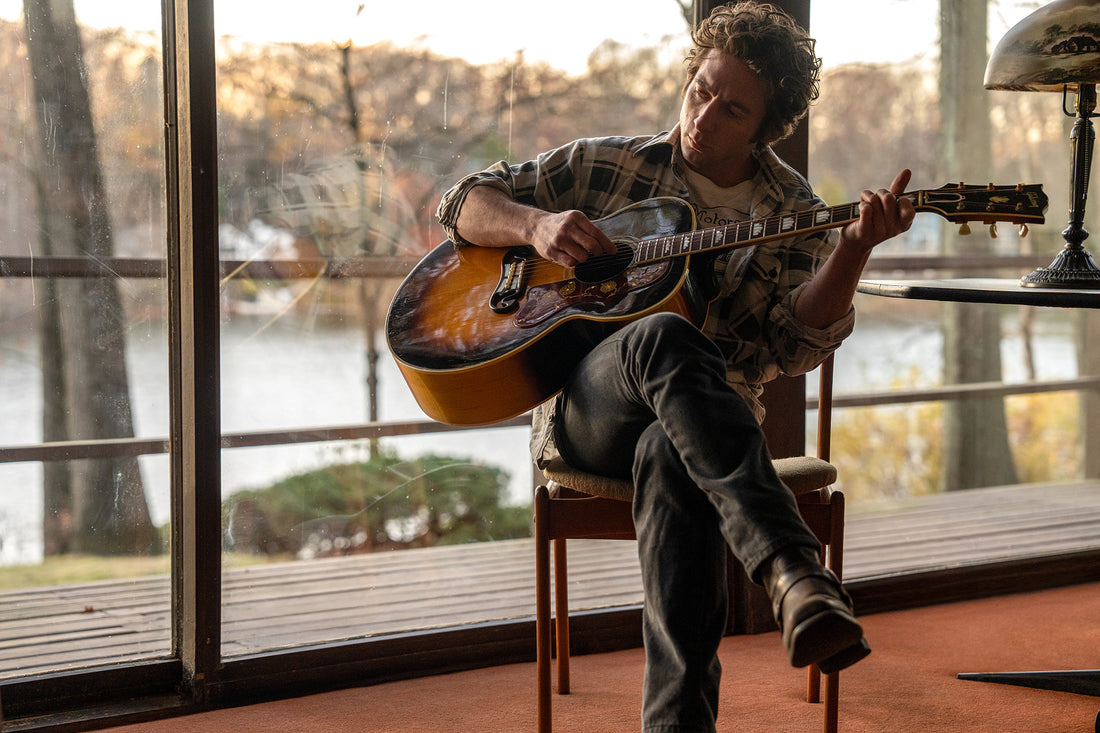 Jeremy Allen White as Bruce Springsteen in Springsteen: Deliver Me from Nowhere (©20th Century Studios)
Jeremy Allen White as Bruce Springsteen in Springsteen: Deliver Me from Nowhere (©20th Century Studios)
Landing a job like that must come with a fair bit of pressure.
“When I heard about the project I knew three things were going to be true: I knew there was going to be a lot of Bruce’s music—assumably not just Nebraska but also hits—and I knew that there would be some really cool period pieces from the eighties to give it that authenticity—things like Foreigner, and other great bands from that era that felt germane to the Bruce world—and then I knew that whoever got the job of scoring the movie would have to do a really good job of walking that tightrope.
“I didn’t want to sound like a watered down, diluted version of Bruce or Nebraska and I didn’t want to present a score that tried to make so much noise that it takes away from the backdrop that is this beautiful movie—but it had to be enough of score that it can be remembered, and give actual life and meaning and substance to the film without it feeling fluffy or again, a diluted version of this legacy of Bruce. I think I only felt the pressure truly when I attended the New York Film Festival, where it premiered. Once I did the red carpet, that’s when I felt the flood of pressure! I think I had my blinders up the whole time I was working on the film. Of course I knew it was the biggest opportunity of my composing career and all that stuff, but creatively I didn’t let the pressure seep in.”
The interesting thing about Nebraska is how deeply loved it is—even people who aren’t necessarily fans of Springsteen’s other work love the record to death. It’s so naked, yet its stories seem to have a universal ability to connect.
“I don’t know if people understand how astounding it is, what he did, and the way he did it. To go down to a local music store and buy this TEAC 144 Portastudio™, which was very consumer-grade equipment, and to be recording demos in his bedroom, which turned into this amazing album—whether they realize it or not, it lays the groundwork for the Bon Ivers of the world to go into the cabin and make For Emma, Forever Ago, or for Billie Eilish and Finneas. Recording equipment has gotten so sophisticated and so easy to use, and so accessible, that young artists can make life-changing, paradigm-shifting records in the comfort of their own home. And you can almost trace it back to this defining moment that is Nebraska. That was really fascinating to me as an artist.
“Also, learning more about Nebraska—some of the lyrics that were unfinished and that he really had planned on trying to re-record it with the band. None of it was really meant to be kept. And I think that was sort of the vibe I was trying to do when composing for the film—trying to choose pianos and guitars that felt like they would be sister or sibling-style instruments to the guitars used on Nebraska, and trying to maintain that level of rawness and vulnerability in what I was putting into the film, too.”
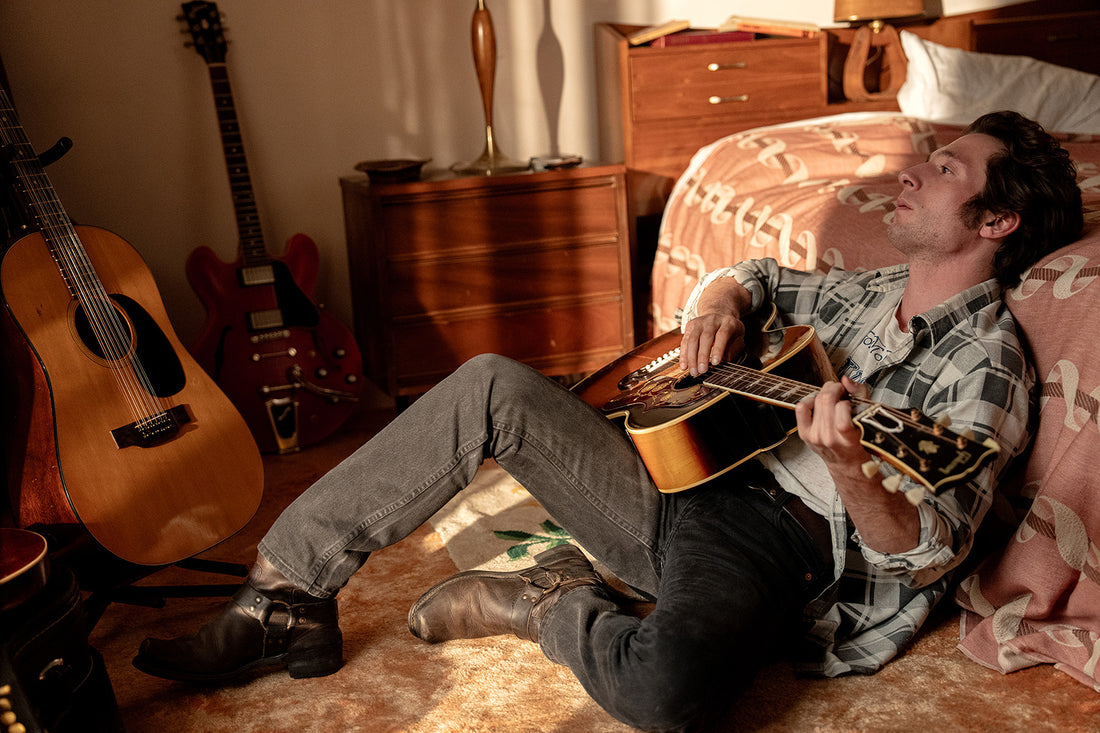 A late-1950s Gibson SJ-200 was the main guitar used by Springsteen on Nebraska (©20th Century Studios)
A late-1950s Gibson SJ-200 was the main guitar used by Springsteen on Nebraska (©20th Century Studios)
What were those instruments?
“The main instrument that jumped out at me as the frontrunner was my Krakauer Brothers upright piano, which is nicknamed ‘Firewood.’ The strings have never been changed and I have a piano tuner who said, ‘Partner, it’s firewood,’ when I asked him what he thought of it. It was the nicest way he could say, ‘This thing is a piece of trash.’ That instrument is all over Lumineers records, probably most notably heard on a song called ‘Donna,’ just to hear how truly whacked out this piano is. And once people hear the score, they’ll hear that too. When we were mixing it at the Power Station, which is where Bruce did a lot of his songs, one of the engineers was like, ‘Hey Jer, I fixed Firewood. I got all the woodiness and the sounds out of it, check it out.’ He’d used some AI cleaner-upper kind of thing. And he hit play and I was like, ‘Please undo that immediately!’ I understand the good intentions but that woodiness and that imperfectness is what needed to go into this film. I was really trying to stick to my guns about that.
“I forget what electric guitar I used, but I definitely used a sixties Gibson Hummingbird for a couple of the cues, which was insanely beautiful and warm—I eventually succumbed to an acoustic guitar cue or two because I felt like it was appropriate. And I think there’s no way it could be mistaken for being off Nebraska, which is good. I think I just put up one condenser mic and did what I thought was a great take and it just fits right into the film effortlessly. It was nice for me to have piano, guitar, and strings but not have the strings feel too big or too Hollywood.”
Did you use any studio trickery to bring the magic of the Nebraska sound into the mix?
“Towards the end, when the film was more or less locked and complete and the cues were ready to be exported, before we started to record all the orchestral stuff, Jason Ruder, the Music Editor, had the idea of using one of the TEAC 144s. I think the studio bought four of them to have on set and they were in working condition, and I also bought one from Japan. So we actually ran some of my cues, some of the glockenspiels, some of the guitars and pianos, back through the TEAC 144 to have that meta interaction within the film, almost like the snake eating its tail! I think it was a brilliant idea.”
It’s funny that people are now making guitar effects pedals designed to recreate the lo-fi sound of those old four-track preamps.
“I read something where Brian Eno talked about that. Whatever is the blemish or is inadequacy of the time, 10 or 20 years later becomes the sought-after thing. Vinyl hiss, unintended distortion, the TEAC 144, things sounding wobbly—people now pay good money for that wobble! I’m wondering now what the next inadequacy that we have in the modern age will be the sought-after thing in 2035! It’s interesting.”
What was your main philosophy when composing for the film? And how much did the subject matter of the songs on Nebraska inform the music you wrote?
“For this movie it felt really important that less was more. Letting dialogue be heard, letting space and silence between characters be felt. It really does wonders for the film. It’s like, in a conversation, only speaking when you have something interesting to say, that’s how I tried to approach the compositions. Only let the score be heard when it truly has something interesting to say. In moments where it needs more silence and less score? That’s great. Try to put the ego aside and serve the film.
“There’s a song by Suicide that Bruce loves, it’s one of his favorite songs ever in real life, called ‘Frankie Teardrop.’ When I read that he loved that song, that gave me liberation to try to go pretty dark with the score. The movie deals with some dark themes, like dealing with depression and going through some really hard moments as a person, and I was able to really dig into some darker colors than one might expect. I felt that leeway from Scott Cooper. I’m a massive fan of Scott’s films and I know that he’s not afraid to go to dark places.
“The characters in the songs on Nebraska are going through some seriously traumatizing experiences. So I think as a composer I was hoping that I could send some of these cues that are pretty dark and dissonant at times—and obviously there are also some cues that don’t dwell on the darkness and give the film some levity and light at times—but that felt like really cool artistic leeway I was given on the film. For this film, I feel like I was method composing! I know what it feels like to be a guy from New Jersey at a creative crossroads, feeling isolated, lonely, and depressed, and not knowing really what the next move is. I had a lot of fun playing that character, so to speak, when I was writing cues for this movie.”
Springsteen: Deliver Me from Nowhere is released theatrically by 20th Century Studios on October 24, 2025. Shop Gibson and Epiphone guitars from and inspired by the motion picture.
